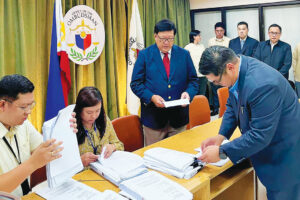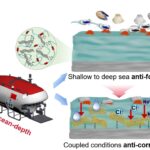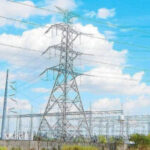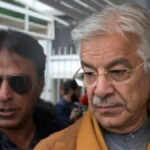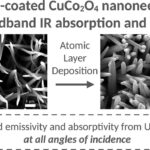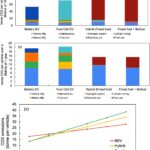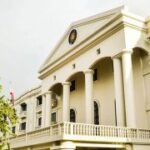
By Erica Mae P. Sinaking
The Philippines' Independent Commission for Infrastructure (ICI) on Wednesday recommended the filing of administrative and criminal charges against lawmakers and public works officials linked to a billion-peso kickback scheme linked to flood control projects under President Ferdinand R. One of the largest corruption investigations under the administration of Marcos, Jr.
In a statement, the ICI said its investigation had found “indications of collusion” between legislators, Department of Public Works and Highways (DPWH) officials and private contractors in the insertion and implementation of flood control allocations in the national budget.
Among those named in the recommendation to the Office of the Ombudsman are Senator Joel J. Villanueva and Jose “Jinggoy” P. Estrada, resigning party-list representative Elizaldi S. The company and ex-DPWH Undersecretary Roberto R. Bernardo was involved.
The ICI also sought charges against a former congresswoman from Caloocan and an audit commissioner.
Mr. Villanueva denied any wrongdoing and said Senate records would prove he raised questions over flood control allocations that were never implemented. “I have been against flood control projects from the beginning,” he told reporters in a Viber message. He said the testimony of a former DPWH engineer would support his defense.
“At the appropriate time all of these will prove my innocence,” he said.
Mr. Estrada also rejected the allegations and said he never received any bribes from the projects.
“The allegations against me are purely hearsay or based on hearsay,” he said in a statement in Filipino. “I will clear my name, and I am confident that the truth will come out at the appropriate time.”
Mr Company, who is reportedly abroad for a medical procedure, has rejected allegations of misconduct, while Mr Bernardo has insisted he had neither knowledge of nor took part in the irregularities.
The ICI said its recommendation was based on preliminary findings and liability would be determined by the Ombudsman. “This move underlines the Commission's commitment to transparency and accountability in public infrastructure spending,” it said.
If proven, the acts could amount to violations of the Anti-Graft and Corrupt Practices Act, the Plunder Law and bribery provisions of the Revised Penal Code, as well as administrative violations of the Code of Conduct for Public Officials.
'Kickback' Trail
The ICI said affidavits and documentary evidence from former DPWH engineers showed that lawmakers supported or inserted flood control projects into the national budget from 2022 to 2025 in exchange for bribes of 20% to 30% of the project cost.
It said payments were made through field engineers and supporting contractors to secure project awards and facilitate release of funds. This arrangement was described as a “systematic kickback structure”, with legislators acting as project proponents and DPWH officials acting as mediators.
The scheme began at the budget stage, when proposed projects were included in the National Expenditure Program (NEP), passed through the bicameral conference committee and retained in the final General Appropriations Act (GAA).
Once the funds were released, the preferred contractors allegedly sent the percentage to the officials who approved the project documents, variation orders and disbursement vouchers. The ICI said that many projects were non-existent, redundant or prohibitively expensive, wasting billions of public money.
It cited the examples of Bulacan, Pampanga and Quezon City where allocations in 2023 and 2024 had “similar scope” despite being given to different contractors.
The ICI reached its conclusions based on sworn affidavits and supporting evidence from former DPWH engineers Henry C. Alcantara, Bryce Erickson D. Hernandez and JP M. Mendoza.
During the Ombudsman filing, ICI President Andres B. Reyes, Jr. named former public works project engineer John Carlo Rivera as a key intermediary who allegedly facilitated the transaction. Mr. Rivera was one of 16 DPWH personnel suspended over the same scandal last month.
Eyewitnesses said Mr. Rivera transmitted project lists prepared by DPWH engineers to regional offices or lawmakers, after which summaries were compiled and contractors were selected. The kickback was reportedly paid in two installments – an initial 10% advance upon NEP approval and the remaining 15% after GAA enactment.
“If entries were included in the GAA, the entire 25% special allocation portion is given to the proposer,” Mr. Reyes said. “This 25% payment is given by the contractor in advance to ensure that the project will be awarded to them.”
He said the pattern points to “a strong culture of fund manipulation” within the infrastructure budget.
“We will continue to investigate, follow the evidence and bring charges to the last person involved,” Mr. Reyes said. “This time there will be no delay in justice. This is our promise to the countrymen.”
The filing marks ICI's second referral to the ombudsman and comes seven weeks after the commission was established. Since launching its investigation on September 19, the body has called several witnesses, formed a technical working group for faster fund recovery and confirmed over 421 ghost flood control projects across the country.
The Commission has also coordinated with the Philippine National Police for site inspections and is working to improve the licensing of government contractors.
On Tuesday, ICI Executive Director Brian Keith F. Hosaka said the body was reviewing the rules for livestreaming proceedings to promote transparency. However, he said additional powers – such as the ability to cite uncooperative witnesses for contempt – may be needed for legislation.
